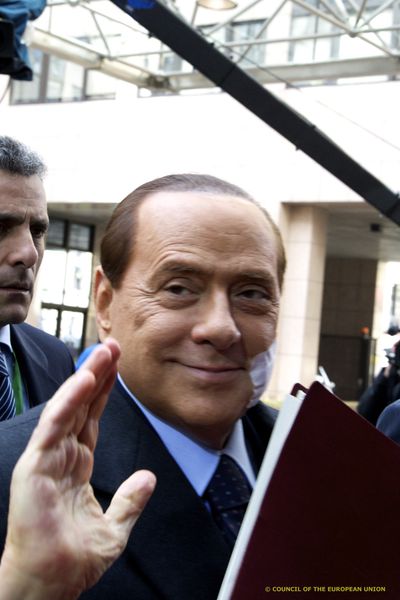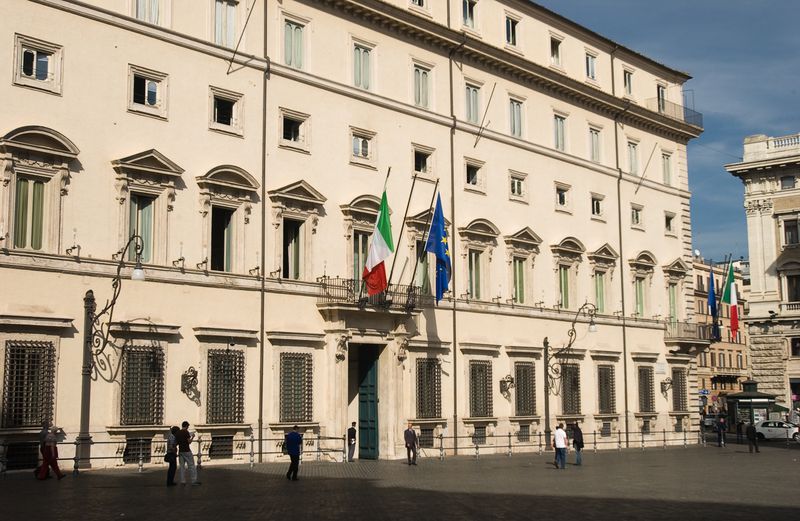Does Justice Have Age?
Adelina Marini, August 2, 2013
Finally! Probably this is what many people say after they learn that the sentence of four years in prison for Silvio Berlusconi is final. Finally, may be the most controversial Italian politician, who rules over politics and media in Italy, but also over the public opinion across Europe, has been caught! Just like the famous mafioso from the beginning of the 20th century in USA, Al Capone, Berlusconi, too, has been sentenced for tax fraud. The justice was unable to punish him for his sexual offences with minor prostitutes, nor for the obvious conflict of interest between his media business that made him a billionaire and his political functions, or for bending the legislation entirely to his service.
 But do not haste to celebrate! Justice has age. It is very likely that the former Italian prime minster and leader of the centre right People of Liberty party not to serve his sentence in prison. The Italian legislation provides for an amnesty for old age which will allow the 76-year old scandalous politician to serve his sentence at home or by probation. Not only that, but for three out of the four years sentence he can be pardoned. It seems that the Italian legislation is not deprived of feelings and has mercy over the age of criminals. Obviously, for the Italian legislation the former Italian premier was sufficiently young and energetic to commit tax fraud, but is sufficiently old and weak not to endure his punishment for that.
But do not haste to celebrate! Justice has age. It is very likely that the former Italian prime minster and leader of the centre right People of Liberty party not to serve his sentence in prison. The Italian legislation provides for an amnesty for old age which will allow the 76-year old scandalous politician to serve his sentence at home or by probation. Not only that, but for three out of the four years sentence he can be pardoned. It seems that the Italian legislation is not deprived of feelings and has mercy over the age of criminals. Obviously, for the Italian legislation the former Italian premier was sufficiently young and energetic to commit tax fraud, but is sufficiently old and weak not to endure his punishment for that.
Moreover, an essential part of the final verdict of the Italian court of cassation, which is to ban Berlusconi from taking public office for five years, must be confirmed by the country's Senate. In other words, Mr Berlusconi is too old and weak to stay in prison, but not that much to continue his participation in the public life in case the Senate would confirm the court's decision where his People of Liberty party has the second largest majority. It is inevitable to start thinking in the framework of the southern and northern when one sees such a development with a continuous political economic saga. It is inevitable not to be impressed by the sympathy the southern justice has for the convicts as an antipode to the relentlessness and inevitability of the nordic justice. It is impossible not to make the link between the stage of economic and public development of the southern nations with their compassionate justice.
Against the backdrop of all this, it is even more striking that media and politicians in Italy are convinced that this so longed and very soft sentence will have hard political consequences. Although they sound funny, the words of the newest political star on Italian stage, Beppe Grillo, the leader of the Five Star Movement, should be taken seriously. He compared Berlusconi's verdict with the fall of the Berlin wall in 1989. Beyond the pathos of Grillo, presenting himself as a fighter against the status quo in Italy, who pronounced "Berlusconi is dead! Long live Berlusconi", the political environment in the country has very serious expectations for a response that threatens to shake the already fragile political stability achieved after months of efforts and negotiations after the inconclusive elections last winter. Even President Giorgio Napolitano called for serenity and cohesion, which is another sign of expected strong political storms.

All this shows very clearly the level of emotionality in the Italian politics and justice. Emotionality which makes investors, creditors and politicians all over the world, but especially in the eurozone, very nervous. This shows that either the Italian justice is very compassionate to offenders but not to their victims or it reveals fear. Fear that it is possible Berlusconi to return on a white horse and take revenge. Fear or compassion, it does not matter. What matters is that it seems in Italy law does not rule politicians, but they rule law.